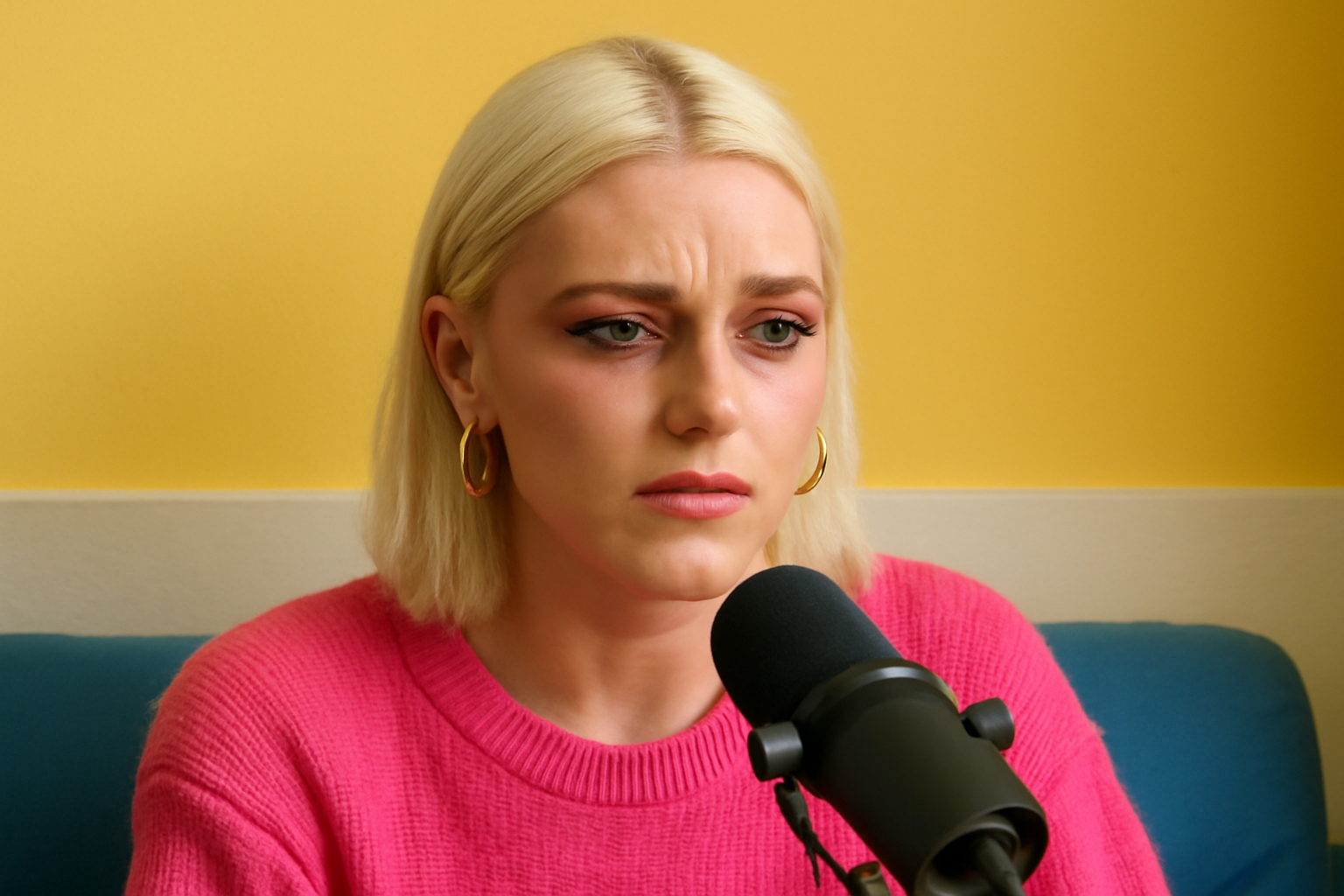
In a recent heartfelt discussion on their podcast, "The Pieces," beloved star of Drag Race UK, Bimini, delves into the complex struggles they have faced with addiction, depression, and anxiety. At 31, the drag performer and musician reflects on how they have navigated the pressures and challenges that arose following their rise to prominence after their stint on the reality TV show.
Bimini candidly shared that their battle with substance use began in their early twenties, a period marked by intermittent struggles with addiction. Remarkably, they managed to maintain sobriety for a full year before appearing on Drag Race UK in 2021. However, the overwhelming success and attention that followed left them grappling with feelings of unworthiness and impostor syndrome.
"I felt so much pressure, almost like a fraud," Bimini confessed during the podcast. "There were incredible opportunities, things I had only dreamed of. Yet, over those years, I've battled with addiction, depression, and anxiety, and it's been a continuing cycle."
The drag star admits that they struggled to accept their mental health challenges, often feeling ashamed and lost. "At times, I didn't know where to turn or what to do. I felt weak and disconnected from myself. But I know I can't continue in this cycle any longer. It's time to break free."
Reflecting on their professional journey, Bimini recounts experiences of being manipulated and mistreated by powerful figures in the industry. These encounters left them feeling "chewed up and spat out," with significant damage to their credibility within the Drag Race community, especially due to issues with merchandise distribution.
"I was silenced," they explained, "and the impact was so profound that I couldn't cope. People were scammed, and I felt a deep responsibility for it. Unfortunately, this has been a battle for the past three and a half years."
Aside from these challenges, Bimini's mental health struggles were compounded by uncertainty about their career path and gossip within the community about their personal battles. "There was so much talk about my addiction and troubles, even from friends who I'd hoped would support me. Instead of reaching out, they chose to gossip," they said, acknowledging that they weren't ready to admit to their problems at the time.
Despite these hurdles, Bimini notes that they've had moments of empowerment and growth, though progress hasn't always been consistent. "The darkness can return, and there have been times when I questioned my existence. But I've persevered to reach this point," they shared, emphasizing their ongoing journey to recovery.
After seeking professional help, Bimini has been diagnosed with anxiety and depression and has returned to therapy. They emphasize the importance of moving past self-blame and releasing the trauma that has accumulated over the years. "I have a substance abuse disorder, and it's something I'm actively working to overcome. I will succeed, I know I will," they affirmed.
"I can't continue this cycle, and the only way to break it is to acknowledge my problem. There's strength in that admission," Bimini concluded, encouraging others facing similar challenges to find their power in vulnerability and honesty.
The conversation around mental health and addiction is vital, and Bimini's openness serves as a reminder of the importance of support within the community. Share your thoughts on this topic in the comments below, and let's keep the discussion respectful and supportive.
Tags: Addiction, Mental Health, Recovery, LGBTQ+, Drag Race
Related Posts
Triumphant Trans Woman Wins Legal Battle and Inspires Others to Stand Up for Their Rights
Breaking new ground: a landmark victory in transgender rights After battling in courtrooms and enduring endless challenges, Diana Portillo, a transgender woman, has secured a monumental victory in her decade-long fight against workplace discrimination. The result? Nearly $1 million awarded in a historic settlement. But this isn't just a win on paper—it represents a powerful precedent in combati [...]
Pride Month in Latin America: Protests and Demands for Equality
**Celebrating Pride and advocating LGBTQ+ rights in Latin America** Pride Month in Latin America was a lively mix where celebration met activism. Communities united, not just throwing a party but making a stand—demanding equality and pushing governments toward better protection and rights recognition. Throughout Latin America, pride events erupted in marches and cultural displays, each with a c [...]
Transgender Erasure Actions Implemented by National Park Service
```html Trump administration's impact on national park service and transgender recognition The Trump administration made notable moves in undermining transgender representation, which included directing agencies like National Park Service not include "T" and "Q" when they refered “LGBTQ” in any official communication. This move seems part a broader plan by this administration aimed at reducin [...]